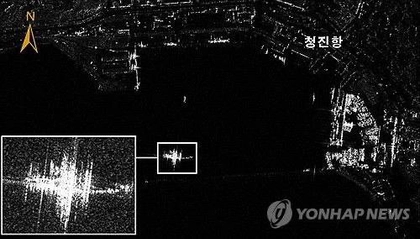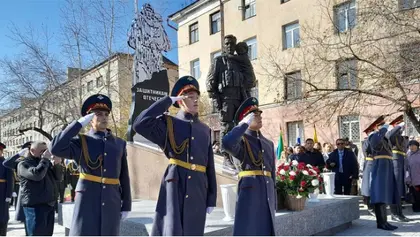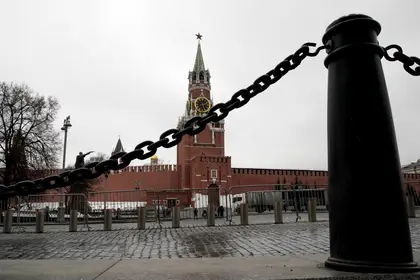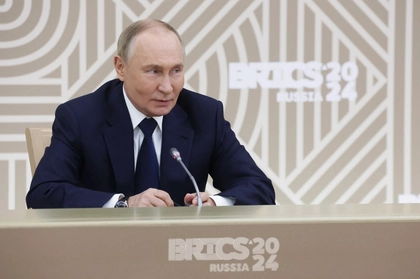While more monuments to the war in Ukraine are being erected in Russia, those commemorating victims of Soviet-era repression – including those of racial minorities – are slowly being dismantled, as reported by The Moscow Times on Monday.
Since Russia’s 2022 full-scale invasion the Russian human rights organization “International Memorial” says that at least 23 such monuments have been vandalized or simply taken down across the country – from St. Petersburg to Russia’s far east capitals.
JOIN US ON TELEGRAM
Follow our coverage of the war on the @Kyivpost_official.
Those included a granite cross commemorating persecuted Poles in St. Petersburg’s Levashovo Memorial Cemetery, a stone structure commemorating exiled Poles in the eastern Siberian city of Yakutsk, and numerous plaques in Moscow commemorating victims of the Gulags, the penal colony system in which large numbers of dissidents were consigned.
“We are certain that all of these actions are sponsored by the government one way or another,” said Alexandra Polivanova from International Memorial.
On Monday, President Vladimir Putin told his Human Rights Council that Soviet-era repression should not take place in Russia, seemingly acknowledging the shortcomings of the Soviet regime.
“It is important for us that nothing like this repeats itself in the history of our country,” he said.
However, the frequent silencing and oppression of any kind of political opposition by his regime has seen thousands arrested - along with the disappearance of anti-repression memorials – has demonstrated a different reality.

Up to 12,000 North Korean Troops Transferred to Russia, Satellite Images Show
As Putin attempts to downplay the less-glorious side of Russia’s past, he continues to draw a parallel between his war in Ukraine and the Soviet struggle against Nazi Germany – known as the “Great Patriotic War.” His rhetoric might explain the staggering increase in the numbers of war monuments being erected to memorialize those who have died in Ukraine.
According to The Moscow Times report, thousands of such monuments have been erected throughout Russia following the launch of Russia’s so-called “special military operation” against Ukraine.
Polivanova said that more than 3,000 such monuments have appeared – an average of almost five plaques a day.
This included a 3.3-meter-tall statue in Chita, the capital of the far eastern Zabaikalsky region that has suffered massive casualties in Ukraine. The statue is said to have cost RUB.5.6 million ($63,000), far in excess of the annual local salary of around RUB.62,135 ($640) a month according to the Russian government site “Gogov”.
“For us, military service is the main way of earning a living,” said a resident of a nearby village in an article published by Radio Liberty, depicting the grim reality for many of those from the region.
The new monuments, which in style are reminiscent of the “socialist realism” of the statues that commemorated the USSR’s bloody victory over Nazi Germany, continue to be erected across the nation. They serve as a reminder of the slaughter on both sides in the war in Ukraine even as victory, for Russia, is still far from sight.
You can also highlight the text and press Ctrl + Enter






